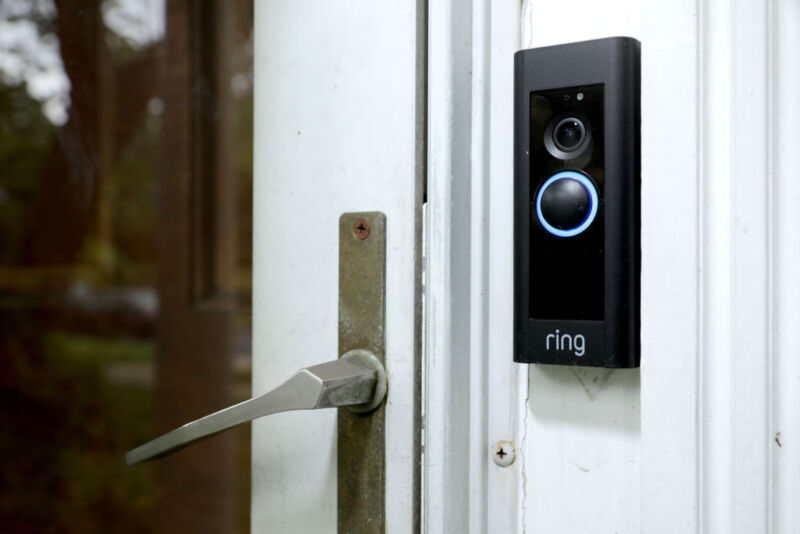Cops’ favorite face image search engine fined $33M for privacy violation

A controversial facial recognition tech company behind a vast face image search engine widely used by cops has been fined approximately $33 million in the Netherlands for serious data privacy violations.
According to the Dutch Data Protection Authority (DPA), Clearview AI “built an illegal database with billions of photos of faces” by crawling the web and without gaining consent, including from people in the Netherlands.
Clearview AI’s technology—which has been banned in some US cities over concerns that it gives law enforcement unlimited power to track people in their daily lives—works by pulling in more than 40 billion face images from the web without setting “any limitations in terms of geographical location or nationality,” the Dutch DPA found. Perhaps most concerning, the Dutch DPA said, Clearview AI also provides “facial recognition software for identifying children,” therefore indiscriminately processing personal data of minors.
Training on the face image data, the technology then makes it possible to upload a photo of anyone and search for matches on the Internet. People appearing in search results, the Dutch DPA found, can be “unambiguously” identified. Billed as a public safety resource accessible only by law enforcement, Clearview AI’s face database casts too wide a net, the Dutch DPA said, with the majority of people pulled into the tool likely never becoming subject to a police search.
“The processing of personal data is not only complex and extensive, it moreover offers Clearview’s clients the opportunity to go through data about individual persons and obtain a detailed picture of the lives of these individual persons,” the Dutch DPA said. “These processing operations therefore are highly invasive for data subjects.”
Clearview AI had no legitimate interest under the European Union’s General Data Protection Regulation (GDPR) for the company’s invasive data collection, Dutch DPA Chairman Aleid Wolfsen said in a press release. The Dutch official likened Clearview AI’s sprawling overreach to “a doom scenario from a scary film,” while emphasizing in his decision that Clearview AI has not only stopped responding to any requests to access or remove data from citizens in the Netherlands, but across the EU.
“Facial recognition is a highly intrusive technology that you cannot simply unleash on anyone in the world,” Wolfsen said. “If there is a photo of you on the Internet—and doesn’t that apply to all of us?—then you can end up in the database of Clearview and be tracked.”
To protect Dutch citizens’ privacy, the Dutch DPA imposed a roughly $33 million fine that could go up by about $5.5 million if Clearview AI does not follow orders on compliance. Any Dutch businesses attempting to use Clearview AI services could also face “hefty fines,” the Dutch DPA warned, as that “is also prohibited” under the GDPR.
Clearview AI was given three months to appoint a representative in the EU to stop processing personal data—including sensitive biometric data—in the Netherlands and to update its privacy policies to inform users in the Netherlands of their rights under the GDPR. But the company only has one month to resume processing requests for data access or removals from people in the Netherlands who otherwise find it “impossible” to exercise their rights to privacy, the Dutch DPA’s decision said.
It appears that Clearview AI has no intentions to comply, however. Jack Mulcaire, the chief legal officer for Clearview AI, confirmed to Ars that the company maintains that it is not subject to the GDPR.
“Clearview AI does not have a place of business in the Netherlands or the EU, it does not have any customers in the Netherlands or the EU, and does not undertake any activities that would otherwise mean it is subject to the GDPR,” Mulcaire said. “This decision is unlawful, devoid of due process and is unenforceable.”
But the Dutch DPA found that GDPR applies to Clearview AI because it gathers personal information about Dutch citizens without their consent and without ever alerting users to the data collection at any point.
“People who are in the database also have the right to access their data,” the Dutch DPA said. “This means that Clearview has to show people which data the company has about them, if they ask for this. But Clearview does not cooperate in requests for access.”
Dutch DPA vows to investigate Clearview AI execs
In the press release, Wolfsen said that the Dutch DPA has “to draw a very clear line” underscoring the “incorrect use of this sort of technology” after Clearview AI refused to change its data collection practices following fines in other parts of the European Union, including Italy and Greece.
While Wolfsen acknowledged that Clearview AI could be used to enhance police investigations, he said that the technology would be more appropriate if it was being managed by law enforcement “in highly exceptional cases only” and not indiscriminately by a private company.
“The company should never have built the database and is insufficiently transparent,” the Dutch DPA said.
Although Clearview AI appears ready to defend against the fine, the Dutch DPA said that the company failed to object to the decision within the provided six-week timeframe and therefore cannot appeal the decision.
Further, the Dutch DPA confirmed that authorities are “looking for ways to make sure that Clearview stops the violations” beyond the fines, including by “investigating if the directors of the company can be held personally responsible for the violations.”
Wolfsen claimed that such “liability already exists if directors know that the GDPR is being violated, have the authority to stop that, but omit to do so, and in this way consciously accept those violations.”
Cops’ favorite face image search engine fined $33M for privacy violation Read More »




